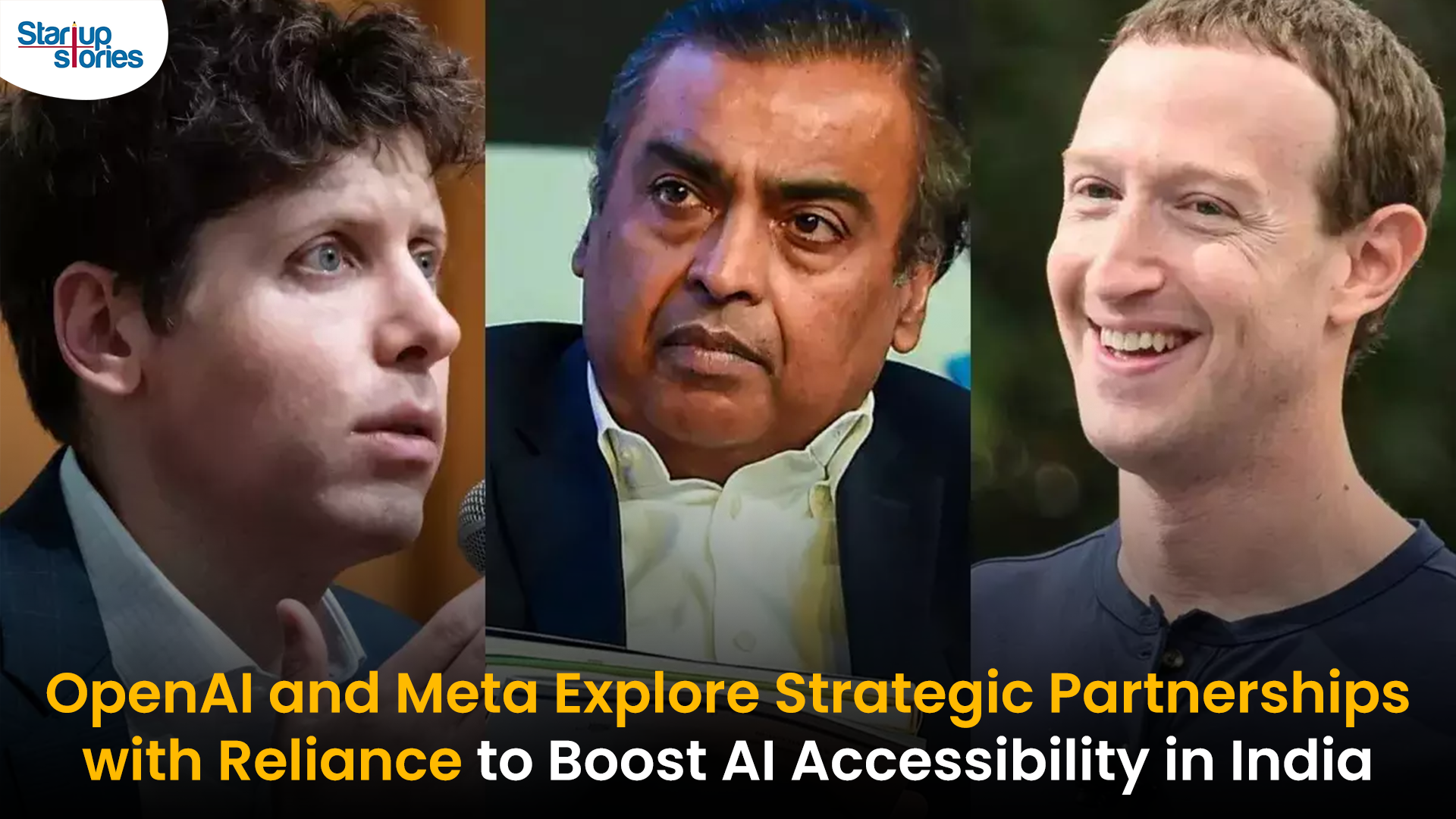Artificial Intelligence
New AI Scam Targets Gmail Users with Fake Account Recovery Requests!

A sophisticated AI-powered scam is preying on Gmail users, tricking them into approving fraudulent account recovery requests to gain unauthorized access to personal information. IT consultant and tech blogger Sam Mitrovic recently encountered this scam firsthand and shared his experience, shedding light on the tactics scammers employ to deceive users.
How the Scam Operates
The scam begins with an unexpected notification—either via email or phone—asking the target to approve a Gmail account recovery request they never initiated. These recovery requests often originate from foreign locations. In Mitrovic’s case, the request came from the United States, which raised immediate red flags.
If the user denies the request, the scammers escalate their attack. Approximately 40 minutes later, they follow up with a phone call appearing to come from an official Google number. The call, Mitrovic notes, is eerily convincing:
- The scammer uses a polite, professional, and American-accented voice.
- They claim suspicious activity was detected on the user’s Gmail account, typically from a foreign login.
- By raising security concerns, they attempt to create urgency and gain the user’s trust.
To enhance the illusion, the scammer may send a spoofed email that appears to be from Google, complete with official-looking logos and formatting. They insist that someone has accessed the user’s account and downloaded sensitive information. The ultimate goal is to trick the victim into approving the recovery request, granting attackers complete access to the account.
How Gmail Users Can Stay Safe
Mitrovic stresses the importance of vigilance and shares several key steps that Gmail users can take to protect themselves from these deceptive tactics:
- Decline Unsolicited Recovery Requests: If you receive a recovery request you did not initiate, do not approve it. This is a primary warning sign that someone may be targeting your account.
- Verify Suspicious Phone Calls: Google rarely contacts users directly by phone, except for specific Google Business services. If you receive a suspicious call claiming to be from Google, hang up and verify the number through Google’s official website.
- Examine Emails for Authenticity: Spoofed emails can closely mimic legitimate messages from Google. Carefully check the sender’s email address, domain, and “To” field for inconsistencies.
- Regularly Review Security Activity: Go to your Gmail Security settings and review recent logins for any unfamiliar activity. Staying proactive with regular security checks can help detect breaches early.
- Inspect Email Headers for Clues: For more advanced users, analyzing email headers can reveal if a message was sent from a legitimate Google server or a spoofed address.
Stay Alert Against AI-Based Scams
This new wave of AI-driven scams demonstrates how cybercriminals are evolving their tactics to exploit users’ trust. The sophistication of this scam—including fake recovery requests, spoofed emails, and realistic phone calls—can easily deceive even tech-savvy individuals.
Mitrovic’s experience underscores the importance of remaining cautious when handling unexpected account recovery requests and phone calls. His advice is clear: always verify the source of such requests by cross-checking with official Google channels and never rush into actions out of fear or urgency. Attackers often rely on panic to bypass victims’ better judgment.
Conclusion
The rise of AI-driven phishing attacks necessitates increased caution among users. By following preventive measures such as declining unsolicited recovery requests and verifying unexpected communications, Gmail users can better protect themselves against this growing threat and avoid falling victim to AI-based deception. Remaining vigilant in these matters is crucial for safeguarding personal information in an increasingly digital world.
Artificial Intelligence
Adopt AI Secures $6 Million to Power No-Code AI Agents for Business Automation

Adopt AI, a San Jose and Bengaluru-based agentic AI startup, has raised $6 million in seed funding led by Elevation Capital, with participation from Foster Ventures, Powerhouse Ventures, Darkmode Ventures, and angel investors. The funding will be used to expand the company’s engineering and product teams and to scale enterprise deployments of its automation platform.
Founded by Deepak Anchala, Rahul Bhattacharya, and Anirudh Badam, Adopt AI offers a platform that lets businesses automate workflows and execute complex actions using natural language commands, without needing to rebuild existing systems. Its core products include a no-code Agent Builder, which allows companies to quickly create and deploy AI-driven conversational interfaces, and Agentic Experience, which replaces traditional user interfaces with text-based commands.
The startup’s technology is aimed at SaaS and B2C companies in sectors like banking and healthcare, helping them rapidly integrate intelligent agent capabilities into their applications. Adopt AI’s team includes engineers from Microsoft and Google, with Chief AI Officer Anirudh Badam bringing over a decade of AI experience from Microsoft.
The company has also launched an Early Access Program to let businesses pilot its automation solution and collaborate on new use cases.
Artificial Intelligence
Social Media Platforms Push for AI Labeling to Counter Deepfake Risks

Social media platforms are intensifying efforts to combat the misuse of deepfake technology by advocating for mandatory AI labeling and clearer definitions of synthetic content. Deepfakes, created using advanced artificial intelligence, pose significant threats by enabling the spread of misinformation, particularly in areas like elections, politics, and personal privacy.
Meta’s New Approach
Meta has announced expanded policies to label AI-generated content across Facebook and Instagram. Starting May 2025, “Made with AI” labels will be applied to synthetic media, with additional warnings for high-risk content that could deceive the public. Meta also requires political advertisers to disclose the use of AI in ads related to elections or social issues, aiming to address concerns ahead of key elections in India, the U.S., and Europe.
Industry-Wide Efforts
Other platforms like TikTok and Google have introduced similar rules, requiring deepfake content to be labeled clearly. TikTok has banned deepfakes involving private figures and minors, while the EU has urged platforms to label AI-generated media under its Digital Services Act guidelines.
Challenges Ahead
Despite these measures, detecting all AI-generated content remains difficult due to technological limitations. Experts warn that labeling alone may not fully prevent misinformation campaigns, especially as generative AI tools become more accessible.
Election Implications
With major elections scheduled in 2025, experts fear deepfakes could exacerbate misinformation campaigns, influencing voter perceptions. Social media platforms are under pressure to refine their policies and technologies to ensure transparency while safeguarding free speech.
Artificial Intelligence
Transforming India’s AI Landscape: OpenAI and Meta’s Collaborative Talks with Reliance Industries

OpenAI and Meta Platforms are reportedly in discussions with India’s Reliance Industries to explore potential partnerships aimed at enhancing their artificial intelligence (AI) offerings in the country. This development underscores India’s growing significance in the global AI landscape.
Key Aspects of the Discussions
- Partnership with Reliance Jio: One of the main focuses is a potential collaboration between Reliance Jio and OpenAI to facilitate the distribution of ChatGPT in India. This could enable wider access to advanced AI tools for businesses and consumers, leveraging Reliance’s extensive telecommunications network.
- Subscription Price Reduction: OpenAI is considering reducing the subscription cost for ChatGPT from $20 to a more affordable price, potentially just a few dollars. While it is unclear if this has been discussed with Reliance, such a move could significantly broaden access to AI services for various user demographics, including enterprises and students.
- Infrastructure Development: Reliance has expressed interest in hosting OpenAI’s models locally, ensuring that customer data remains within India. This aligns with data sovereignty regulations and addresses growing concerns about data privacy. A planned three-gigawatt data center in Jamnagar, Gujarat, is expected to serve as a major hub for these AI operations.
Market Implications
These potential partnerships reflect a broader trend among international tech firms aiming to democratize access to AI technologies in India. If successful, they could reshape India’s AI ecosystem and accelerate adoption across various sectors. As negotiations continue, stakeholders are closely monitoring how these alliances may impact India’s technological landscape and its position as a leader in AI innovation.













vt5i5
June 4, 2025 at 3:15 am
how can i get generic clomiphene pill clomid medication effects cost of clomid at cvs clomid calculator how to buy cheap clomid withou buy clomiphene can i buy generic clomid tablets
MM88
November 6, 2025 at 6:37 am
Với giao diện mượt mà và ưu đãi hấp dẫn, MM88 là lựa chọn lý tưởng cho các tín đồ giải trí trực tuyến.
iwin
November 7, 2025 at 2:18 am
iwin – nền tảng game bài đổi thưởng uy tín, nơi bạn có thể thử vận may và tận hưởng nhiều tựa game hấp
谷歌站群
November 7, 2025 at 11:29 am
专业构建与管理谷歌站群网络,助力品牌实现全域流量的强势增长。谷歌站群
J88
November 9, 2025 at 6:40 am
Đến với J88, bạn sẽ được trải nghiệm dịch vụ cá cược chuyên nghiệp cùng hàng ngàn sự kiện khuyến mãi độc quyền.
MM88
November 12, 2025 at 2:47 am
Khám phá thế giới giải trí trực tuyến đỉnh cao tại MM88, nơi mang đến những trải nghiệm cá cược thể thao và casino sống động.
站群程序
November 14, 2025 at 5:55 am
采用高效谷歌站群策略,快速提升网站在搜索引擎中的可见性与权重。谷歌站群
GO88
November 23, 2025 at 11:14 pm
Tham gia cộng đồng game thủ tại Go88 để trải nghiệm các trò chơi bài, poker phổ biến nhất hiện nay.
Kuwin
December 1, 2025 at 10:07 am
kuwin sở hữu kho game đa dạng từ slot đến trò chơi bài đổi thưởng, mang đến cho bạn những giây phút giải trí tuyệt vời.